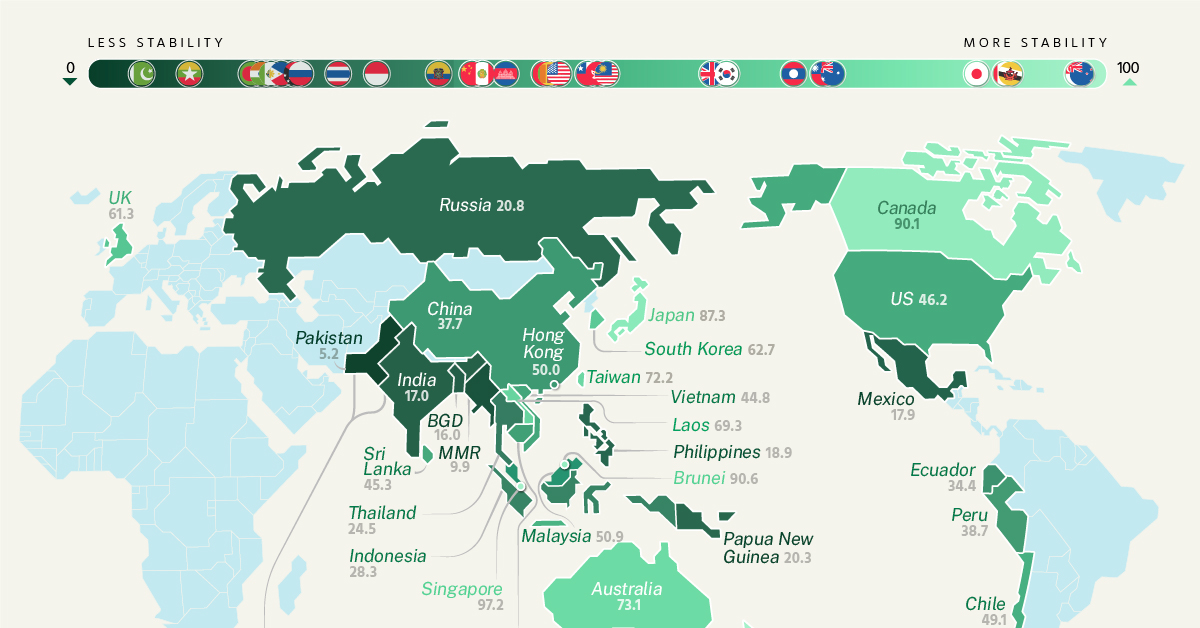Understanding The Great Decoupling: A Comprehensive Guide

Table of Contents
Defining the Great Decoupling
The Great Decoupling refers to the diminishing economic interdependence between the West (primarily the United States and Europe) and China (and, increasingly, other emerging markets). It signifies a move away from the hyper-globalization of recent decades towards a more regionalized and fragmented economic system. This shift is driven by a confluence of factors, leading to a less interconnected and more competitive global economy.
- Definition in simple terms: The Great Decoupling is the growing separation of the economies of Western nations and China and other emerging markets, marked by reduced trade, investment, and technological exchange.
- Key drivers:
- Geopolitical tensions: Rising US-China rivalry, the war in Ukraine, and other geopolitical conflicts are fostering distrust and leading to protectionist policies.
- Technological competition: The struggle for dominance in critical technologies like semiconductors and artificial intelligence is fueling a technological decoupling.
- Supply chain diversification: Countries are actively diversifying their supply chains to reduce reliance on single sources, particularly those perceived as geopolitically risky.
- Distinction from previous periods of economic divergence: While periods of economic divergence have occurred before, the scale and multifaceted nature of the current decoupling, driven by technology and geopolitics, make it unique and potentially transformative.
Geopolitical Implications of the Great Decoupling
The Great Decoupling is fundamentally reshaping global power dynamics. The shift away from a unipolar world order towards a multipolar one is accelerating, with significant implications for international relations.
- Increased competition between major economic powers: The decoupling fuels competition for resources, markets, and technological leadership, increasing the likelihood of strategic rivalry and conflict.
- Rise of regional alliances and trade blocs: We're seeing the emergence of regional economic blocs like the Regional Comprehensive Economic Partnership (RCEP) as countries prioritize closer ties within their regions.
- Impact on international institutions and global governance: The effectiveness of global institutions like the World Trade Organization (WTO) is challenged by rising protectionism and nationalistic tendencies.
- Increased risk of trade wars and protectionism: As countries prioritize domestic industries and security concerns, trade tensions and protectionist measures are likely to increase.
Economic Consequences of the Great Decoupling
The economic consequences of the Great Decoupling are multifaceted, presenting both challenges and opportunities.
- Restructuring of global supply chains: Companies are actively reshoring, nearshoring, and friend-shoring—relocating manufacturing and sourcing closer to home or to trusted allies.
- Inflationary pressures in certain sectors: Disruptions to global supply chains have contributed to inflationary pressures, particularly in sectors reliant on imports from decoupling regions.
- Opportunities for emerging markets: Some emerging markets are poised to benefit from the reshuffling of global supply chains, attracting investment and becoming new manufacturing hubs.
- Challenges for multinational corporations: Multinational corporations face increased complexity in managing geographically dispersed operations and navigating evolving regulatory environments.
- Impact on specific industries: Industries heavily reliant on globalized supply chains, such as electronics and automotive manufacturing, are particularly vulnerable to disruption.
The Impact on Supply Chains
The Great Decoupling is forcing a fundamental reassessment of global supply chain strategies. Resilience and diversification are paramount.
- Nearshoring and friend-shoring initiatives: Companies are relocating production to countries geographically closer or politically aligned.
- Increased investment in automation and technology: Automation is being adopted to reduce reliance on human labor and mitigate supply chain vulnerabilities.
- Risks associated with supply chain fragmentation: A more fragmented supply chain can lead to increased costs, reduced efficiency, and greater vulnerability to disruptions.
- The role of technology in building resilient supply chains: Digital technologies, including AI and blockchain, are being leveraged to improve transparency, traceability, and responsiveness in supply chains.
Technological Implications of the Great Decoupling
Technological advancements are both a driver and a consequence of the Great Decoupling. The competition for technological dominance is intensifying.
- Competition in key technological areas (e.g., semiconductors, AI): The struggle for leadership in crucial technologies is a central aspect of the decoupling process.
- Investment in domestic technology sectors: Countries are investing heavily in developing their own technological capabilities to reduce dependence on foreign technologies.
- Development of alternative technological standards: The decoupling could lead to the emergence of competing technological standards, fragmenting the global technology landscape.
- The impact on innovation and technological progress: While the decoupling presents challenges, it could also stimulate innovation as countries invest in research and development to achieve technological self-reliance.
Conclusion
The Great Decoupling represents a profound shift in the global economic order. Its multifaceted nature—encompassing geopolitical tensions, economic restructuring, and technological competition—presents both challenges and opportunities. Understanding the Great Decoupling is crucial for businesses and investors navigating the changing global landscape. By analyzing its dynamics and adapting strategies accordingly, you can position yourself for success in this new era of economic reorganization. Learn more about the Great Decoupling and its implications by exploring our resources and staying informed on the latest developments in this crucial area of global economics. Further research into the Great Decoupling will be essential for informed decision-making in this rapidly evolving environment.

Featured Posts
-
 Nicolas Cages Lawsuit Dismissal Of Ex Wifes Claims Sons Remain
May 09, 2025
Nicolas Cages Lawsuit Dismissal Of Ex Wifes Claims Sons Remain
May 09, 2025 -
 Ai Powered Figma The Future Of Design Is Here
May 09, 2025
Ai Powered Figma The Future Of Design Is Here
May 09, 2025 -
 10 Adn Pas Selangor Beri Sokongan Penuh Kepada Mangsa Tragedi Putra Heights
May 09, 2025
10 Adn Pas Selangor Beri Sokongan Penuh Kepada Mangsa Tragedi Putra Heights
May 09, 2025 -
 Geopolitical Implications Trumps Influence On Greenland And Denmark
May 09, 2025
Geopolitical Implications Trumps Influence On Greenland And Denmark
May 09, 2025 -
 Thailands Central Bank Governor Search Navigating Tariff Challenges
May 09, 2025
Thailands Central Bank Governor Search Navigating Tariff Challenges
May 09, 2025
